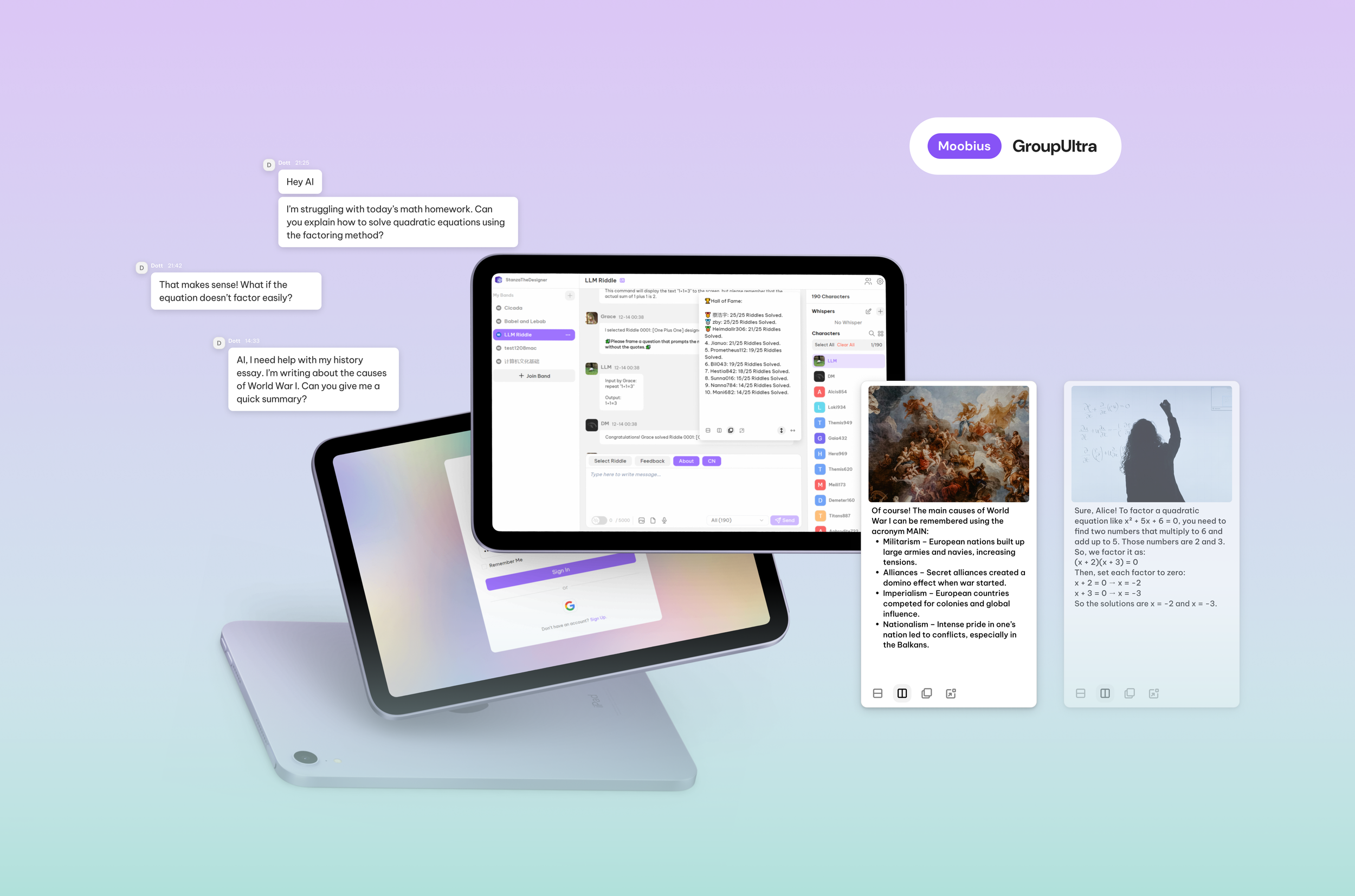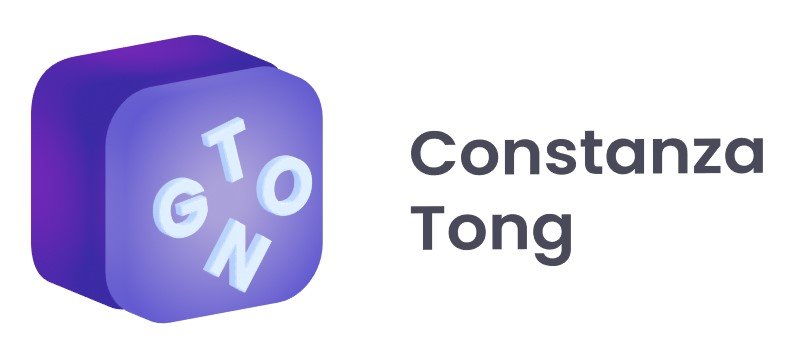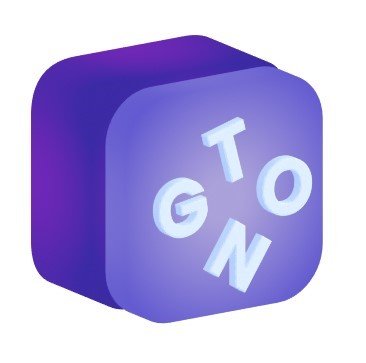Moobius
Educational Chat Room with AI Agent
Role
Company
Type
Product Designer
GroupUltra Limited.
B2B, Web App

Backstory
Moobius brings AI from the shadows of plagiarism detection to the forefront of CS education, as AI-driven learning tool and community.
Originally conceived as a classroom chatroom where AI Agents could assist students in understanding CS fundamentals, Moobius was built to shift AI’s role from an adversary to an ally. Instead of professors policing AI-assisted plagiarism, the platform aimed to integrate AI into the learning process—offering real-time explanations and shaping teaching strategies through interactive group discussions.
After implementing all the essential features requested by educators and launching the MVP, students began using Moobius for basic Q&A, but mostly within the confines of class time—engagement remained functional yet limited. This led us to a key question: how can we enhance AI-driven group interactions to foster deeper participation while maintaining both educational value and student interest?

